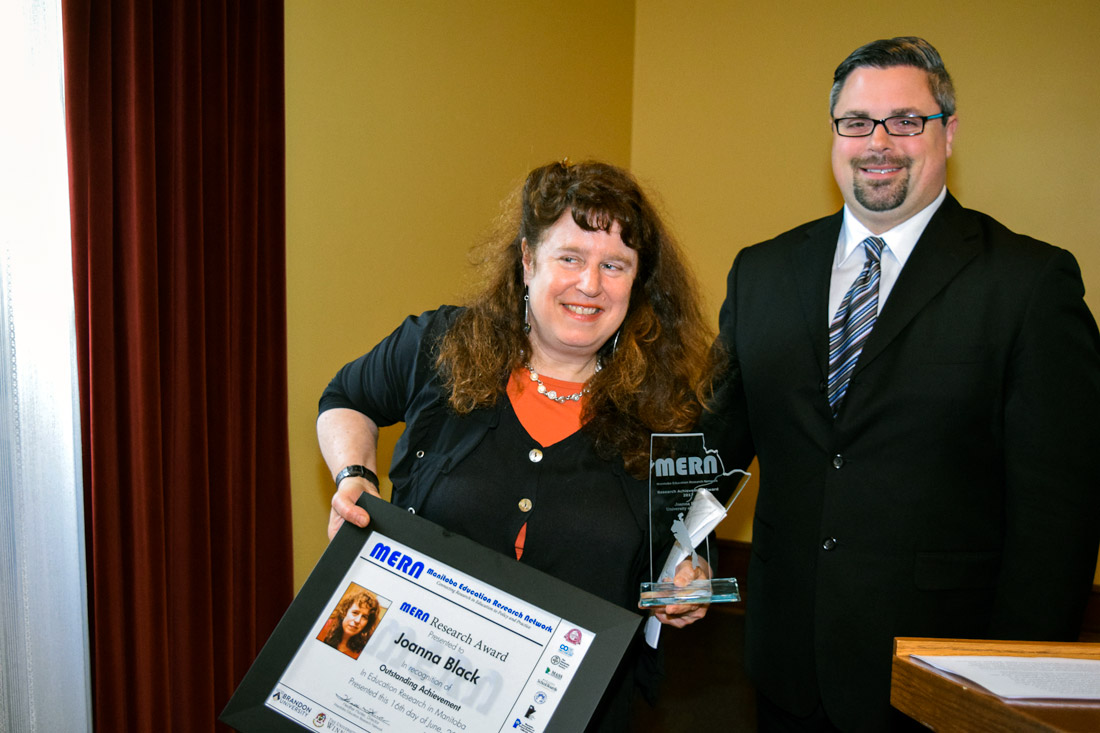
Prof. wins education research award
25-year career researching tech, new media in teaching
Professor of art education Joanna Black has won an education award recognizing her 25-year career researching new media in teaching and learning and educational digital technologies.
In receiving the award, presented by the Manitoba Education Research Network, Prof. Black said she was hooked on technology since she saw her first cellphone in Toronto some 30 years ago.
“It was like I was watching the movie show, Star Trek and seeing a glimpse into the future,” she said in her acceptance speech.
A teacher of visual arts and new media education, Prof. Black also researches and publishes works on virtual visual-arts classrooms, new media in education, contemporary art, and digital visual-arts pedagogy.
Most recently, she spent two years researching innovative teaching methods and curriculum in public schools in a book exploring youth experiences in digital culture and how that affects social change, teaching as well as creative learning practices. Titled, “Youth Practices in Digital Arts and New Media: Learning in Formal and Informal Settings,” the book examines learning, knowledge sharing, teacher-student relationships, and artistic creative inquiry in both formal and informal learning environments.
Supported by a SSHRC grant, Prof. Black co-authored the book with two other academics—Juan Carlos Castro, assistant professor of Art Education at Concordia University in Montreal, and Ching-Chiu Lin a postdoctoral research fellow in the Department of Curriculum and Pedagogy at the University of British Columbia in Vancouver.
While Lin and Castro researched teaching practices in private settings in British Columbia and Quebec, respectively, Black chose publicly funded schools and programs in Manitoba. She says her co-authors were skeptical at first that public programs could be as innovative as private settings but her findings proved them wrong.
“They said it’s absolutely amazing what students can achieve when they’re taught well,” she said. “It takes innovative, cutting-edge teachers, whether it’s in the alternative- or in the public-school settings, and it also takes flexible administrators,” Black said. “It’s a magic combination of both of those.”
Increasingly, Black says there is a growing gap in digital arts and new media between what students’ experiences outside of school compared with what they find in classroom environments. She said it is crucial for schools to keep up with changing technology for several reasons: to stay relevant to their students, to keep students engaged and to ensure students are better prepared to tackle the challenges of changing technology.
“For sure, it’s really important to prepare the students for the 21st-century workforce,” she said.
Moving forward, Prof. Black said she is now working with Prof. Castro and Dr. Mike Emme, an art education professor at University of British Columbia to research students’ use of social media, and media technology and how that applies to education.






